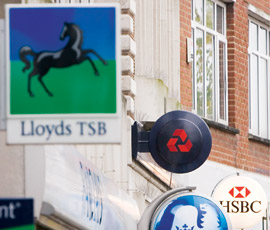Farmers face long wait for bank mis-selling deals

Farmers mis-sold interest rate hedging products (IRHPs) are having to endure many months’ wait before their banks make offers to resolve the financial problem caused by the mis-selling.
Banks have been ordered to employ independent scrutineers to oversee mis-selling reviews, which must be concluded by the end of this year. However, solicitors and others advising farmers say that in some cases, eight months has passed since review meetings took place, but no offer has been made.
The IRHP mis-selling scandal came to light about two years ago after an estimated 40,000-plus small and medium-sized businesses were sold products which they understood would protect them from rising interest rates on loans.
These were sold mainly from 2005 onwards and in many cases the loan offer was conditional on the interest rate protection being taken out.
However, most of the businesses taking up these products were not advised by their banks of the risk that if interest rates fell, the customer would have to make extra payments to their bank on top of any normal interest and loan repayments.
When interest rates fell in 2008-09, the swap charges kicked in and some farms are paying thousands of pounds in extra charges each month to meet their obligations under these contracts.
In addition, those who sought to get out of these contracts before their time had run were faced with punishing break costs or exit fees of typically 20-25% of the loan taken out.
| Litigation time limit |
|---|
| Taking legal action is an alternative to the review process offered by the banks. However, advisers warn that time is running out for many – action must begin within six years of the mis-selling having taken place. |
Main issues with the sale of IRHPs
- Whether the customer understood the nature of the risk.
- Disclosure of exit costs – often these were poorly explained by banks.
- Whether products were sold on the basis of information or advice
- Mismatching of amounts and/or timescale of the loan and hedge.
- Rewards and incentives driving these sales.
At the start of this year the Financial Conduct Authority ordered banks to launch reviews for individual customers after it found that more than 90% of the swap sales it examined in a pilot survey did not meet its regulatory requirement. Consequential losses should also be considered in the reviews.
Business owners had been left straddled with ruinously high interest rates for loans and a great deal of personal anxiety and stress, said Daniel Fallows, a director at Seneca Banking Consultants, Haydock. The firm is handling claims worth more than £100m for farmers. Some have gone into administration because of the knock-on financial effect of the heavy charges under the IRHPs they bought.
“I have some clients who have literally lost everything,” said Jon Green of Bristol solicitor Clarke Willmott, who has been advising many businesses, including farms, on this issue.
None of the farms he advises has borrowed less than £500,000 with an IRHP. One of the loans involved is for £900,000 and the business is facing a £14,000 extra charge each quarter because of the IRHP.
“Then the bank increases the overdraft facility in order for the business to meet the IRHP charges,” he said.
He refutes the FCA’s claim that the process of achieving redress is simple. “If you go into that review meeting without all the paperwork or unprepared in any other way, you won’t get a good result,” he warned.
“We have advised clients to make written submissions rather than attending in person,” said Mr Green, who urged anyone affected to take advice, despite assurances from some banks that the process is straightforward. “Some banks are being far more pro-active than others about this – it is very noticeable,” he said.
The fact that the relationship between farmers and their bankers was often more than a commercial one could cause added stress and difficulty when it came to making a claim, said Mr Green.
The banks that must conduct reviews are Barclays, Lloyds Banking Group, HSBC, Royal Bank of Scotland, Co-operative Bank, Santander UK, Yorkshire and Clydesdale.
